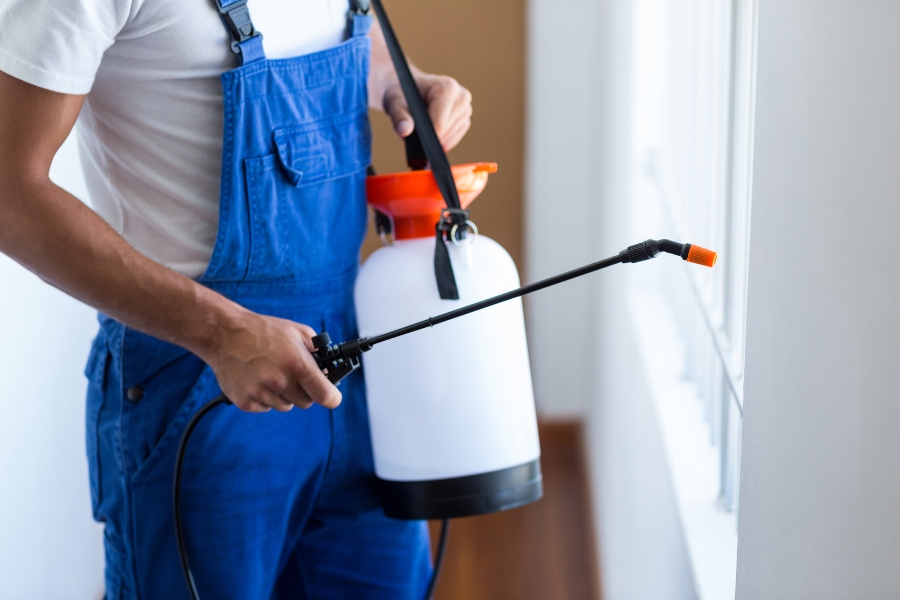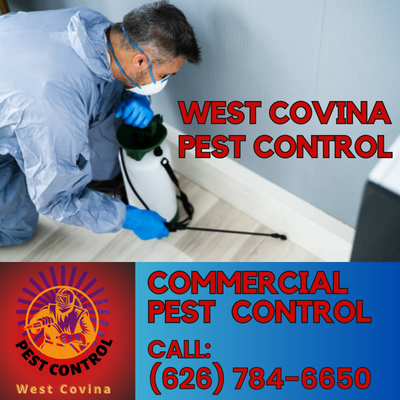Comprehending the Various Methods to Insect Control: A Comprehensive Guide

All-natural Pest Control Approaches
Using environment-friendly methods such as buddy planting and biological parasite control is crucial for successfully handling insects in farming settings. Friend growing includes growing different plants in closeness to hinder bugs, enhance nutrient uptake, and boost total plant health and wellness. Planting marigolds along with tomatoes can aid push back nematodes. Intercropping maize with beans can disrupt the reproduction patterns of parasites like corn borers.
Organic parasite control entails presenting all-natural predators or microorganisms to manage pest populations. Ladybugs, for circumstances, eat aphids, controlling their numbers without the need for chemical pesticides. One more example is using Bacillus thuringiensis (Bt), a microorganism that targets certain insect parasites while being harmless to people, animals, and advantageous pests.
These eco-friendly techniques not only minimize the dependence on artificial pesticides but also aid maintain biodiversity and dirt health. By including all-natural bug control strategies into agricultural practices, farmers can achieve lasting parasite administration while lessening negative effect on the setting.

Chemical Parasite Control Solutions
Along with all-natural pest control methods, the use of chemical bug control services plays a substantial role in effectively handling pest populaces in farming environments. Chemical insect control remedies are formulated to target specific parasites that might cause substantial damages to crops. These options frequently have synthetic chemicals that are developed to get rid of insects promptly and efficiently.
Among the crucial advantages of chemical pest control solutions is their performance in managing pest infestations widespread. Farmers can apply these services using various techniques such as spraying, airing out, or seed treatment to protect their crops from unsafe pests, weeds, and diseases. Furthermore, chemical pest control options are reasonably simple to use and can provide fast outcomes, helping farmers secure their returns and minimize economic losses.
However, it is important to utilize chemical parasite control services deliberately to lessen prospective negative influence on the atmosphere, non-target organisms, and human health and wellness. Appropriate application methods, adherence to safety standards, and regular monitoring are essential to make certain the liable use chemical insect control options in farming methods.
Biological Pest Control Approaches
Organic parasite control approaches take advantage of all-natural killers or microorganisms to take care of pest populaces in farming setups properly. One usual organic control strategy is the introduction of natural adversaries, such as ladybugs or parasitical wasps, to target certain insects.
One more organic control approach includes utilizing microorganisms like fungi, viruses, or bacteria to infect and kill parasites. On the whole, organic pest control approaches supply a lasting and targeted solution to pest administration in agriculture.
Integrated Pest Monitoring (IPM)
Integrated Insect Administration (IPM) Go Here is a detailed method that integrates different insect control strategies to efficiently take care of and decrease pest populations in agricultural systems. IPM concentrates on long-lasting avoidance of insects via a mix of biological, cultural, physical, and chemical control techniques. By integrating these different strategies, IPM intends to minimize reliance on chemical pesticides, decrease ecological influence, and advertise lasting parasite administration practices.
One secret facet of IPM is using biological controls such as all-natural predators, parasites, and microorganisms to regulate pest populaces. This method harnesses the power of nature to maintain a balance in between pests and their all-natural enemies without triggering harm to the atmosphere.
In addition, IPM includes social techniques like plant habitat, rotation, and cleanliness control to produce negative conditions for parasites and disrupt their life cycles. Physical controls such as mulches, catches, and obstacles are likewise utilized to avoid bug infestations.
Physical and mechanical Pest Control Methods
Making use of non-chemical approaches, such as mechanical and physical pest control strategies, is an important facet of extensive parasite management methods, constructing upon the structure of Integrated Bug Administration's holistic approach. Mechanical bug control involves using physical barriers or traps to protect against parasites from accessing and damaging plants or structures. This approach can include strategies like setting up displays on windows, using row covers in agriculture, or using sticky traps to capture pests.
Physical bug control techniques, on the other hand, concentrate on straight removing parasites via physical methods. Making use of warm therapies to get rid of bed bugs or vacuuming up insects like spiders or ants can be efficient ways to take care of infestations without the use of chemicals. By incorporating these physical and mechanical insect control methods into an Integrated Bug Monitoring strategy, professionals and people can decrease reliance on pesticides while still efficiently handling pest populations and decreasing damages.
Conclusion

In addition to natural insect control techniques, the use of chemical pest control options plays a considerable role in properly handling pest populaces in farming environments.One of the key advantages of chemical bug control services is their effectiveness in controlling bug invasions on a large scale.Integrated Bug Administration (IPM) is a comprehensive method that combines various bug control methods to successfully manage and reduce pest populaces in agricultural systems.Using non-chemical techniques, such as physical and mechanical bug best site control techniques, is a critical facet of extensive parasite monitoring methods, developing upon the foundation of Integrated Insect Monitoring's all natural technique. By incorporating these physical and mechanical pest control methods into an Integrated Parasite Administration strategy, people and professionals can minimize dependence on chemicals while still properly lessening and her response taking care of pest populations damages.
Comments on “Pest Control Clovis Solutions: Specialist Provider at Your Front door”